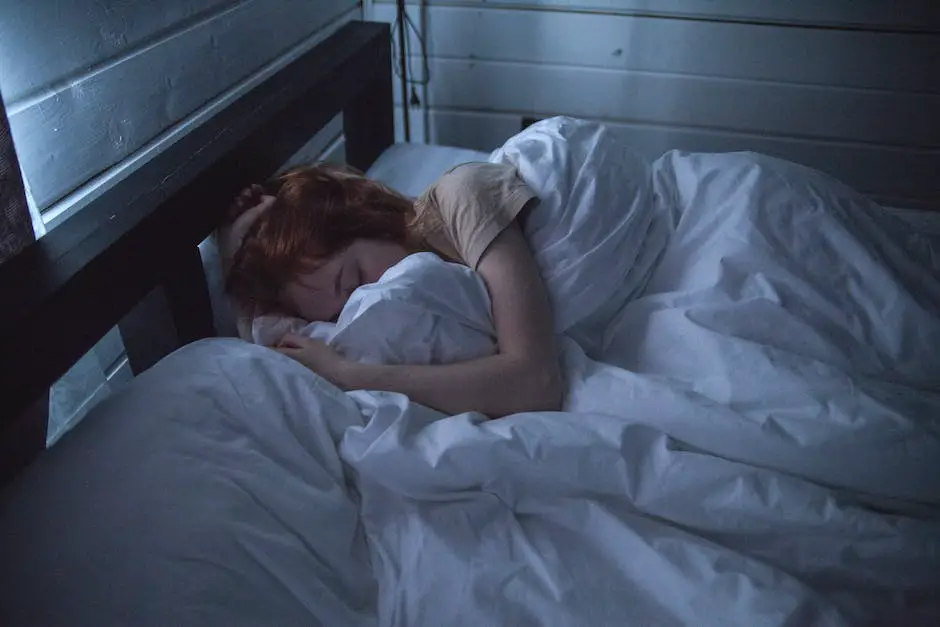The realm of dreams is a perplexing one, filled with symbolism drawn from the depths of our subconscious. Among these, death dreams tend to be the most harrowing for many people due to their intense and often disturbing imagery. The impact of these dreams is not merely isolated to our sleep; they extend their reach to our waking lives, influencing our mental and emotional states. This exploration begins with an analysis of various interpretations of death dreams, shedding light on Freudian, spiritual, and superstitious perspectives. From there, we launch into a discussion about how these dreams intersect with mental health, and the possible implications they may hold for our psychological well-being. Finally, we address potential coping strategies, offering a beacon of hope for those navigating this challenging terrain.
Interpretation of Death Dreams
Freudian Interpretation of Death Dreams
Founded on the theories of Sigmund Freud, psychoanalysis attributes the occurrence of death dreams to subconscious tensions and unresolved conflicts. Freud posited that dreams serve as a window to a person’s unconscious mind, harboring latent desires or hidden thoughts. Therefore, dreams related to death could potentially signal suppressed fears or anxieties about death and mortality, which can indirectly affect mental health by manifesting as stress or anxiety disorders. Concurrently, these dreams could reflect aspects of a person’s life that they need to terminate, such as unhealthy habits or toxic relationships, to alleviate psychological distress.
Symbolic Meaning of Death Dreams
In the realm of dream symbolism, death dreams often represent change rather than literal death, indicating a transition or end of something. Dream interpreters argue that dreaming about death signifies the end of an era or the beginning of something new in a person’s life. Positive interpretation of these symbols can help in boosting mental health by cultivating resilience and openness to change. Conversely, the inability to accept changes or fear of the unknown, as symbolically indicated by these dreams, may contribute to mental health problems like anxiety, depression or phobia.
Spiritual Interpretation of Death Dreams
Spiritual interpretations of death dreams rest on the belief that such dreams comprise messages from the divine and are symbolic of spiritual transformation. If an individual believes in this spiritual perspective, such dreams may not cause significant distress. However, for those individuals who may consider these dreams as a forewarning of actual death or catastrophic events, it could generate fear, distress and badly affect their mental health. This highlights the importance of personal beliefs and cultural contexts in interpreting death dreams and assessing their impact on mental health.
Superstitious Viewpoints on Death Dreams
Superstitions about death dreams vary across different cultures, with some cultures viewing them as ominous while others perceive them as premonitions of good fortune and change. Culturally ingrained superstitions may lead to distress, anxiety, and development of obsessive-compulsive traits in an effort to avert the perceived bad omen, which places an individual at risk for mental health issues. Public education about dreams and their varied interpretations can help alleviate unfounded fears and apprehensions, promoting mental wellbeing.
Psychological Perspective on Death Dreams
Psychologically, death dreams could reflect an individual’s inner thoughts and concerns about mortality, existential dread, or personal loss. Chronic preoccupation with such themes can lead to mental health disorders such as generalized anxiety disorder, panic disorder, or depression. Therapeutic interventions like cognitive behavioral therapy can help individuals understand their dreams in a more objective light, encouraging them to manage fear-inducing dreams effectively to maintain their mental health.
Death dreams, highly intense experiences that involve the dreamer or someone they know coming close to death, have been shown to significantly impact an individual’s mental health. The interpretation of these dream scenarios varies from person to person and carries different implications for each individual’s mental state. As a result, mental health professionals, including therapists, counselors, and clinicians, must familiarize themselves with the many possible interpretations of death dreams to better promote mental health literacy and psychological wellbeing.

Association of Death Dreams and Mental Health
Exploring the Connection Between Death Dreams and Mental Health
Unsettling by nature, “death dreams” are among the most perturbing dreams one can experience. Their highly charged narrative often revolves around the dreamer or someone familiar to them either dying or coming dangerously close to death. Death dreams can resonate in our waking lives due to their intense emotional impact and their potential to lead us into deep introspection about mortality and life itself. Consequently, these dreams can leave significant imprints on our mental health.
Death Dreams as Symbolic of Fear or Anxiety
According to several studies, death dreams often surface as a reflection of the dreamer’s inner anxieties, fears, or trepidations. These could relate to anything from a fear of the unknown or a fear of change to an anxiety about losing control or inability to handle a stressful situation.
Many people experience death dreams when they are going through significant life changes, feeling uncertain about the future, or grappling with self-esteem issues. It can be seen as an exaggerated manifestation of the fears and worries that lie dormant in the subconscious mind, only to reveal themselves under periods of stress or transition.
Impact of Death Dreams on Mental Health
Death dreams can evoke feelings of fear, horror, sadness, or even relief, making their impact on mental health vast. Individuals who frequently have intense, vivid death dreams might experience heightened stress levels, anxiety, depressive symptoms, and poor sleep quality. They might also find themselves obsessing over these dreams during their waking hours, leading to an increased level of fear or preoccupation with death or dying.
Furthermore, if these dreams are particularly distressing, they can contribute to insomnia or other sleep issues, hindering overall mental health by reducing the quality and quantity of sleep. Research has suggested links between recurring nightmares, which can include death dreams, and mental health disorders such as Post-Traumatic Stress Disorder (PTSD) and depression.
Death Dreams as A Conduit for Positive Transformation
While death dreams can be unsettling and raise concerns about mental health, they can also act as powerful catalysts for positive change. These dreams may stimulate introspection and self-examination, allowing the dreamer to confront and address suppressed fears or anxieties, leading to an improved sense of emotional well-being over time.
By considering these dreams as symbolic and reflective of underlying fears or changes, they can serve a therapeutic purpose, prompting self-discovery and personal growth. Hence, the key lies in interpretation and intervention – understanding the basis of these dreams and effectively managing their psychological aftermaths.
Experiencing frequent death dreams can feel distressing, and if you or someone you know can relate to this, reaching out to mental health professionals may be an advisable course of action. These experts can offer beneficial advice, tools, and copious strategies to handle anxiety effectively and manage these dreams healthily.

Effects of Death Dreams on Psychological States
Grasping the Implications of Death Dreams
Dreaming is an inherent and natural part of human existence, stretching across a diverse spectrum from trivial to profound and emotionally laden content. Death dreams, however, can induce uneasiness and raises inquiries about their interpretation and the possible consequences for mental health.
Death Dreams and Anxiety
Frequent death dreams may contribute to increased levels of anxiety, particularly if the dreamer struggles with feelings of fear or apprehension related to death. While many dreams stem from subconscious thoughts and emotions, some researchers suggest that persistent nightmares, including those pertaining to death, could potentially serve as signs of an underlying anxiety disorder. These dreams can induce feelings of fear and stress that persist even after waking, contributing to overall heightened anxiety levels.
Impact on Depression
Depression is a complex mental health disorder that can be influenced by a multitude of factors, one of which is chronic nightmares or disturbing dreams. Individuals constantly experiencing death dreams may find themselves caught in a cycle of negative thinking, leading to feelings of sadness, hopelessness, or despair. This dark, uncomfortable imagery may exacerbate existing depressive symptoms and diminish overall quality of life.
Death Dreams as a Trauma Response
In cases where death dreams feature traumatic or violent imagery, they could potentially be a symptom of post-traumatic stress disorder (PTSD). Individuals who have experienced or witnessed traumatic events, such as accidents, acts of violence, or the death of a loved one, may relive these experiences in their dreams, triggering feelings of fear and helplessness that can interfere with daily functioning.
Possible Indicators of Other Mental Disorders
Apart from anxiety, depression, and PTSD, frequent death dreams may sometimes be indicative of other underlying mental health conditions. For instance, these types of dreams are reportedly prevalent among those dealing with suicidal ideation. Moreover, researchers have found correlations between these dreams and certain personality disorders, such as borderline personality disorder.
Death Dreams as Psychological Catalysts
Not all impacts of death dreams are necessarily negative, however. For some people, dreams involving death can function as catalysts for significant psychological change, prompting introspection and a reevaluation of personal beliefs and attitudes. Some psychologists argue that death dreams can symbolize endings or transitions, offering opportunities for personal growth and transformation.
Final Considerations
After evaluating all the evidence, it’s clear that death dreams can have a variety of effects on mental health, from exacerbating anxiety and depression symptoms to manifesting as echoes of traumatic experiences. Therefore, if someone repeatedly experiences dreams involving death, it could suggest underlying mental health problems. However, it’s crucial to note that interpreting dreams is highly individual and these observations should not be used for self-diagnosis. They should instead be seen as signs indicating that there may be a need for a more comprehensive evaluation by a mental health professional.

Coping Strategies: Dealing with Death Dreams
Decoding the Impact of Death Dreams on Mental Health
Death dreams, which involve thematics of death or dying, are not uncommon and can carry a variety of interpretations. Generally, these dreams symbolize transition, transformation, or the conclusion of a life stage or situation. Yet, when these dreams become persistent or frequent, they have the potential to trigger feelings of fear and anxiety, as both emotions contribute to mental stress and can subsequently impact overall psychological wellbeing.
The Potential Impact on Mental Health
Recurring death dreams can be distressing and might lead to pre-sleep anxiety, triggering insomnia. Stressed individuals may also experience nightmares, further intensifying sleep disorders. Quality sleep is essential for mental health, and its disturbance can contribute to conditions like depression, anxiety disorders, or post-traumatic stress disorder (PTSD). Furthermore, people might develop death-related anxieties or phobias which can manifest in daily life and affect normal functioning. This can result in feeling hopeless, scared or constantly worrying about the future.
Role of Mindfulness and Meditation
Coping strategies can help manage the distress associated with death dreams. Mindfulness and meditation are among the most effective strategies. By focusing on the present moment, individuals can help reduce the fear or anxiety triggered by these dreams. Meditation helps by calming the mind, reducing stress levels and improving sleep quality. Moreover, mindfulness allows individuals to observe their dreams without judgment, and see them as a natural occurrence rather than a fearful experience.
The Importance of Professional Therapeutic Counselling
Professional therapeutic counselling can be especially useful for people experiencing distressing death dreams. Through cognitive behavioral therapy (CBT), for instance, therapists can help patients understand the nature of their dreams and their relationship to their fears or anxieties. Therapists can work with patients to change negative thought patterns around death and dying, leading to a decrease in the frequency and intensity of death dreams.
Sleep Hygiene: A Key to Better Sleep and Mental Health
Maintaining good sleep hygiene can be beneficial in managing death dreams. Establishing a regular sleep schedule, creating a relaxing sleep environment, avoiding stimulants close to bed time, and engaging in relaxing activities before sleep are all part of good sleep hygiene. These practices can not only improve sleep quality, but they can also decrease anxiety and stress levels. Moreover, they can help in reducing the intensity and frequency of death dreams, thereby minimizing potential harm to mental health.
Encouraging Open Discussion and Eliminating Stigma
It is important for individuals who experience frequent death dreams to understand that it is a common phenomenon and there is no stigma attached to seeking help. Open dialogue about dreams and fears can help diffuse the negative effects and reduce anxiety. Peer support can provide a safe space for individuals to share their experiences and learn from others who have experienced similar issues, thus further aiding in processing such dreams.
Ultimately, death dreams can be managed and do not have to undermine mental health.
By adopting mindful practices, seeking professional help, maintaining good sleep hygiene, and facilitating open discussions, the negative impact of these dreams on mental health can be mitigated.

Photo by houcinencibphotography on Unsplash
Death dreams, despite their unsettling nature, serve as a window into our inner world, possibly revealing anxieties and fears that we might be unconsciously grappling with. Their link to psychological states speaks volumes about our hidden stressors, signifying the need for better awareness and understanding around this topic. Yet, while these dreams can disrupt our peace of mind, it is important to remember that coping strategies, ranging from mindfulness practices to seeking professional help, can provide the means for dealing with them more effectively. In this way, we can transform our response to such dreams, reducing their potential harm to our mental health and turning them from harrowing nightmares into tools for self-discovery and healing.
